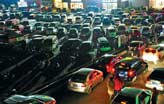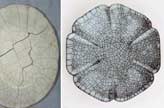Economy
SAFE promises crackdown on 'hot money'
Updated: 2011-08-05 10:15
By Wang Xiaotian (China Daily)
BEIJING - China will resolutely crack down on "hot money", because the country may still face "relatively large" pressure from capital inflows in the second half, the State Administration of Foreign Exchange (SAFE) said on Thursday.
In a statement posted on its website, the watchdog said it will pay more attention to slowing the excessive growth of a surplus of foreign exchange through purchases by banks.
"In the second half, capital inflow pressure may still be 'relatively large'. We should be fully aware of the current grim and complicated situation, track the changes of the domestic and international economic situation and make an effective response," said SAFE.
Concerns over accelerated capital inflows, especially of hot money, have arisen since the foreign exchange reserves of the world's second-largest economy rose by a faster-than-expected 30.3 percent year-on-year by the end of June to reach $3.2 trillion.
Even taking into account exchange-rate valuations and investment returns, net non-foreign direct investment (FDI) capital inflows remained high in the second quarter, said Sun Chi, an economist at Nomura International (HK) Ltd.
Liu Mingkang, China's top banking regulator and a member of the central bank's monetary policy committee, said earlier that rising speculative capital inflows would make it more difficult to curb inflation.
China's inflation rose 6.4 percent year-on-year in June, a three-year record. To soak up liquidity and curb inflation, the central bank has raised interest rates three times and increased the reserve-requirement ratio (RRR) for commercial lenders six times this year.
"The continued accumulation of foreign exchange reserves is likely to prompt further hikes of the reserve requirement ratio in the coming months to mop up liquidity," said Sun. The RRR is the amount that banks must hold in reserve and are not allowed to lend.
Sun expected the central bank to further loosen credit controls to minimize "financial repression", while raising interest rates to further curb inflation in the second half - suggesting one more 25 basis-point interest rate hike in September and two more 50 basis-point hikes to the RRR in the second half.
Apart from the negative effects of capital inflows on the battle against inflation, China should be fully aware of the potential shock of a withdrawal of capital, warned Jiang Jianqing, chairman of Industrial and Commercial Bank of China Ltd, the world's biggest bank by market value.
"A sudden withdrawal of hot money on a large scale will usually produce a great shock to the economy, as we have already witnessed in some Asian and Latin American countries," he said.
Xia Bin, an academic member of the central bank's monetary policy committee, said in an article published in Caijing Magazine that China should continue to strengthen its regulations on capital inflows to fend off the risks produced by hot money.
He suggested the government impose a "Tobin tax", a levy on all spot conversions of one currency to another, to penalize short-term financial "round-trip" excursions into other currencies.
China witnessed hot-money inflows of $35.5 billion in 2010, accounting for 7.6 percent of the increase in the foreign-exchange reserves, according to SAFE.
Lu Zhengwei, chief economist at Industrial Bank Co Ltd, said the uncertainty surrounding the US economy, and rising expectation about a third round of quantitative easing after lawmakers raised the debt ceiling, may also accelerate hot-money inflows into China and other emerging markets in the second half.
Some analysts and officials said the Chinese government should also improve the effectiveness of its macro policies - by, for example, further liberalization of the interest rates - while fighting inflation and curbing speculative cross-border capital inflows.
Banks should be allowed to lend at interest rates that are at a 20 percent discount to the central bank's benchmark, according to a commentary from a group of central bank officials on Wednesday, cited by Bloomberg.
Commercial lenders are currently allowed to lend at interest rates that are at a 10 percent discount.
The commentary also suggested that the country should reduce the number of benchmark lending rates so as to ease controls, and that the liberalization of deposit rates should be "gradual" because such a move may raise costs for enterprises and push prices higher.

Specials

Space race
Homebuyers are learning the hard facts of supply and demand: too many cars and too few parking spaces.

Micro blogs popular
In the aftermath of the train crash, more than 20 million micro-bloggers demonstrated power.

Ancient plate broken
An ancient porcelain plate that was accidentally destroyed was an invaluable part of the Palace Museum's collection but not the best piece of its type.